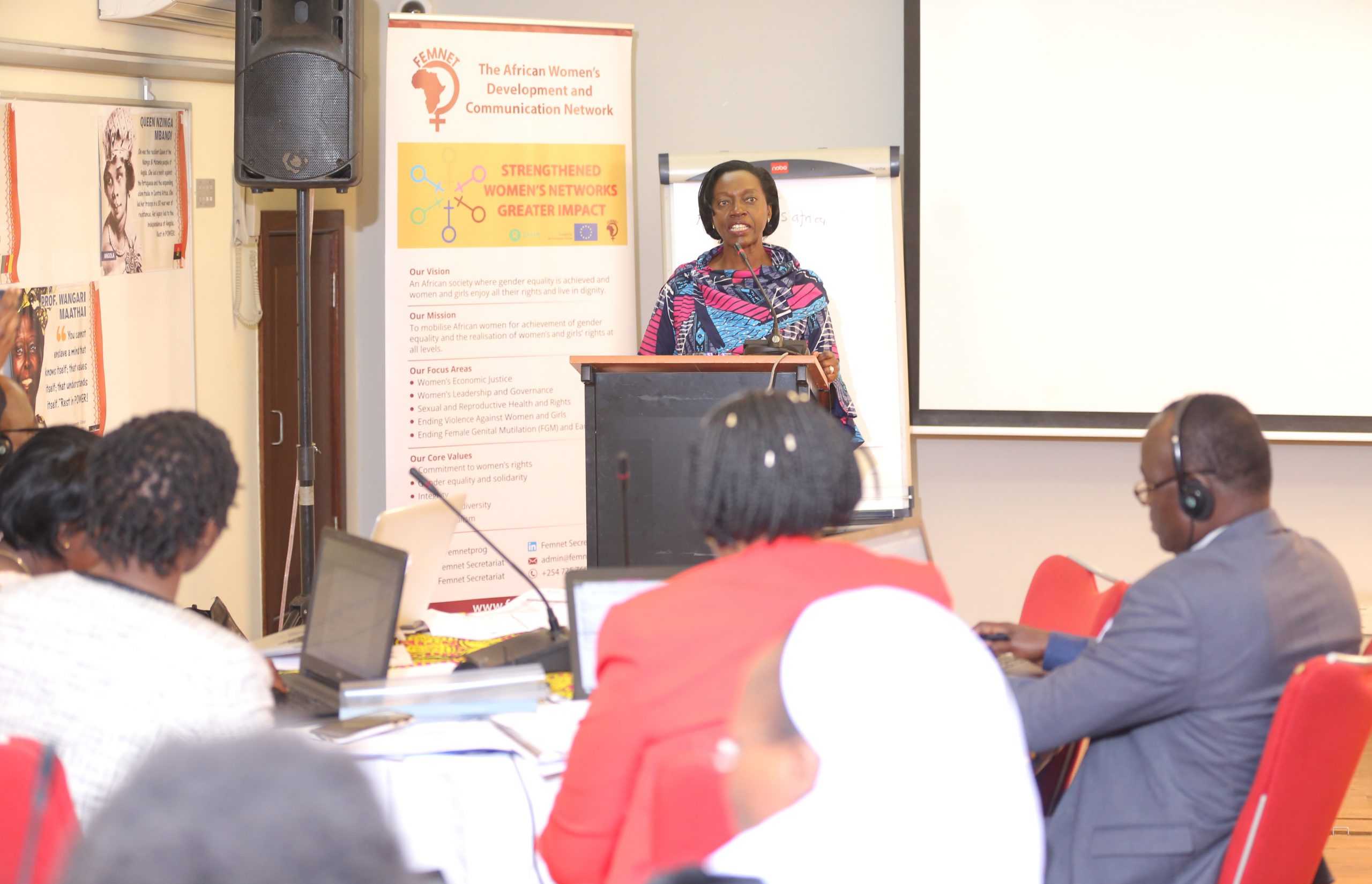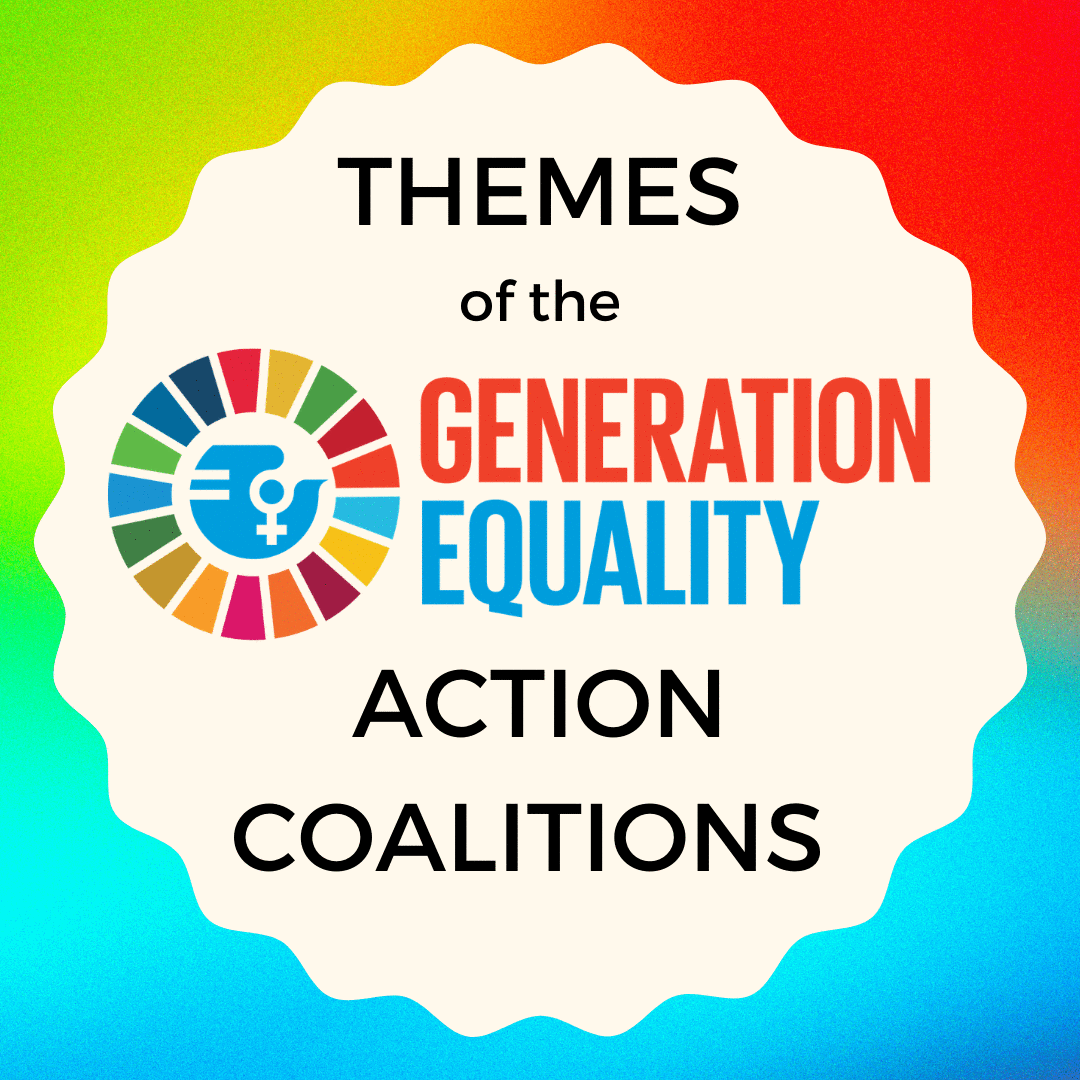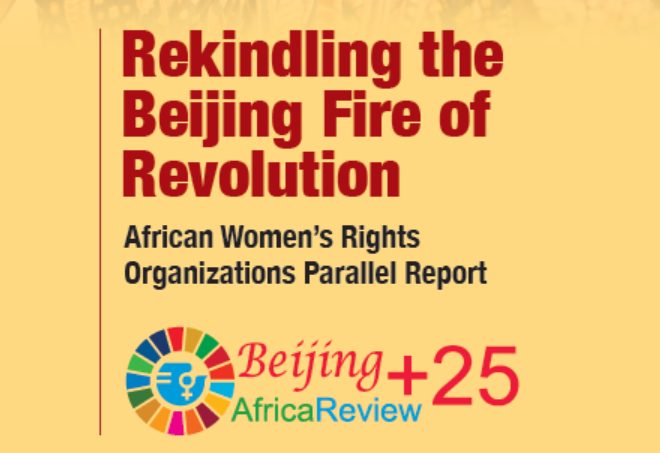
Gender equality is not a favor, it is a RIGHT!
PRESS RELEASE /For Immediate Release
Women must demand their constitutional right without fear or intimidation, says Martha Karua
28th August 2019- Nairobi; Gender equality and total emancipation of Africa’s women and girls will not be complete unless society focuses on re-socializing itself from the claws of patriarchy. Twenty five years since the Beijing Declaration and Platform for Action, African governments and societies are called upon to unlearn patriarchal norms that have for eons condemned women and girls to discrimination and violence.
Former career Member of Parliament for Gichugu and NARC Kenya party leader Honorable Martha Karua at the invitation of the African Women’s Development and Communication Network, FEMNET, alongside members of the Pan-African Parliament (PAP) and regional women’s rights civil society organizations meeting in Nairobi today are urging for a more targeted and pragmatic approaches to achieving gender equality.
“ Why is it that 25 years since Beijing Declaration and Platform for Action the world is still largely 90% patriarchal? “ paused Honorable Martha Karua to the Conference convening at a Nairobi hotel. “If we are raise a generation free from patriarchy then we must begin to re-socialize the entire community to promote gender equality and mutual respect for both men and women. We must realize that violence against women and girls begins at home through the language used and then escalates to physical violence. This is why we must begin changing the society right from the roots”.
Two-thirds bill is not a favor, it is a right!
Referring to the contentious two-thirds gender bill that highlights affirmative action within leadership positions and gender equality across diverse spheres, Honorable Karua chided critics to the bill who decry affirmative action by reinforcing patriarchal ideals that prevent women from rising to their full potential.
“We must learn as women to DEMAND what is rightful provided for us in the Constitution. It is sad that today because of patriarchal sabotage we are told to be silent when we push for the two-thirds gender principle. We hear people say; why are women pushing for free positions? This should not deter us from pursuing what is rightful ours. You must know that demanding for the two thirds gender bill is being truthful to the Constitution; being truthful to Kenya’s men and women who believe in equality and inclusivity”.
Honorable Karua’s sentiments at the conference are in reflection on the Beijing Declaration and Platform for Action of 1995 and its impact twenty-five years later. In September 1995, thousands of women and men from around the world met in Beijing for the Fourth World Conference on Women. This Conference followed several others that had begun in 1975. The Beijing Platform for Action outlines commitments in 12 critical areas of concern in relation to gender equality and women’s emancipation.
At the time of the Beijing Platform for Action, Honorable Martha Karua was a newly elected young Member of Parliament with an unwavering determination to change the gender imbalance in parliament and amplify the voices and presence of women political leaders.
“When I went to Beijing as a Fresh member of parliament in 1993, I was amazed by the level of awareness the conference raised globally in terms of enhance gender equality and women’s rights. When we came back however, we were ridiculed by the former president Moi which made us realize than even though governments might support policies on gender equality by making politically correct statement, they may not be comfortable with the reality of changing the status quo that ensures women to have a voice and presence” reflected Honorable Karua.
Men and boys must also participate
The Chairperson of the FEMNET Board of Directors, Mama Emma Kaliya from Malawi while acknowledging the efforts by civil society organizations in Africa in advancing gender equality and women’s empowerment but still urged for reinforced efforts to get men involved in fostering gender equality.
“I believe men and boys must actively challenge discrimination and stereotypes for us to be successful in achieving gender equality”, she urged. “The more determined women are in fighting for their equality, the more aggressive patriarchy becomes. This is because patriarchy fights back even more strongly when it is challenged and so we must strategize even more smartly on stretching the boundaries for gender equality”.
FEMNET’s Executive Director, Memory Kachambwa while affirming the basis on the convening acknowledged the escalated momentum on gender equality globally since the onset of the Beijing Declaration and Platform for Action in 1995. She acknowledged the advent of progressive policy formulation on gender equality but decried the slow progress on implementation of the policies.
“We have seen some critical transformative policies and processes but the actual transformation on the ground regarding the lives of women and girls has been painfully slow. We must enhance our push to make governments accountable to their full implementation”.
For more Information & to request an interview please contact FEMNET’s Head of Communication Mildred Ngesa; m.ngesa@femnet.or.ke / 0727137853
About FEMNET:
The African Women’s Development and Communication Network (FEMNET) is a pan- African membership-based feminist network based in Nairobi with over 650 members across 48 African countries. FEMNET envisions an African society where gender equality is achieved and women and girls enjoy their rights and dignity while in its mission it seeks to facilitate and coordinate the sharing of experiences, ideas, information, and strategies for human rights promotion among African women’s organizations through networking, communication, capacity-building and advocacy at the regional and international levels. Since its inception in 1988, FEMNET has played a leading role in building the women’s movement in Africa and ensuring that women and girls’ voices are amplified, and their needs, priorities, and aspirations are prioritized in key policy dialogues and outcomes that have direct and indirect impact on their lives. For more visit our website www.femnet.org
Related Tags
Related Posts
FEMNET Selected to Join Global Leaders of the Generation Equality Action Coalitions to Accelerate Gender Equality
We are really excited to be joining these Global Leaders of the #GenerationEquality Action Coalitions to accelerate gender equality
Learn MoreRekindling the Beijing Fire of Revolution: Africa Beijing+25 Parallel Report
The Beijing+25 Africa Regional Civil Society Organisations (CSOs) parallel report provides an independent analysis of the last five years review and appraisal
Learn More

